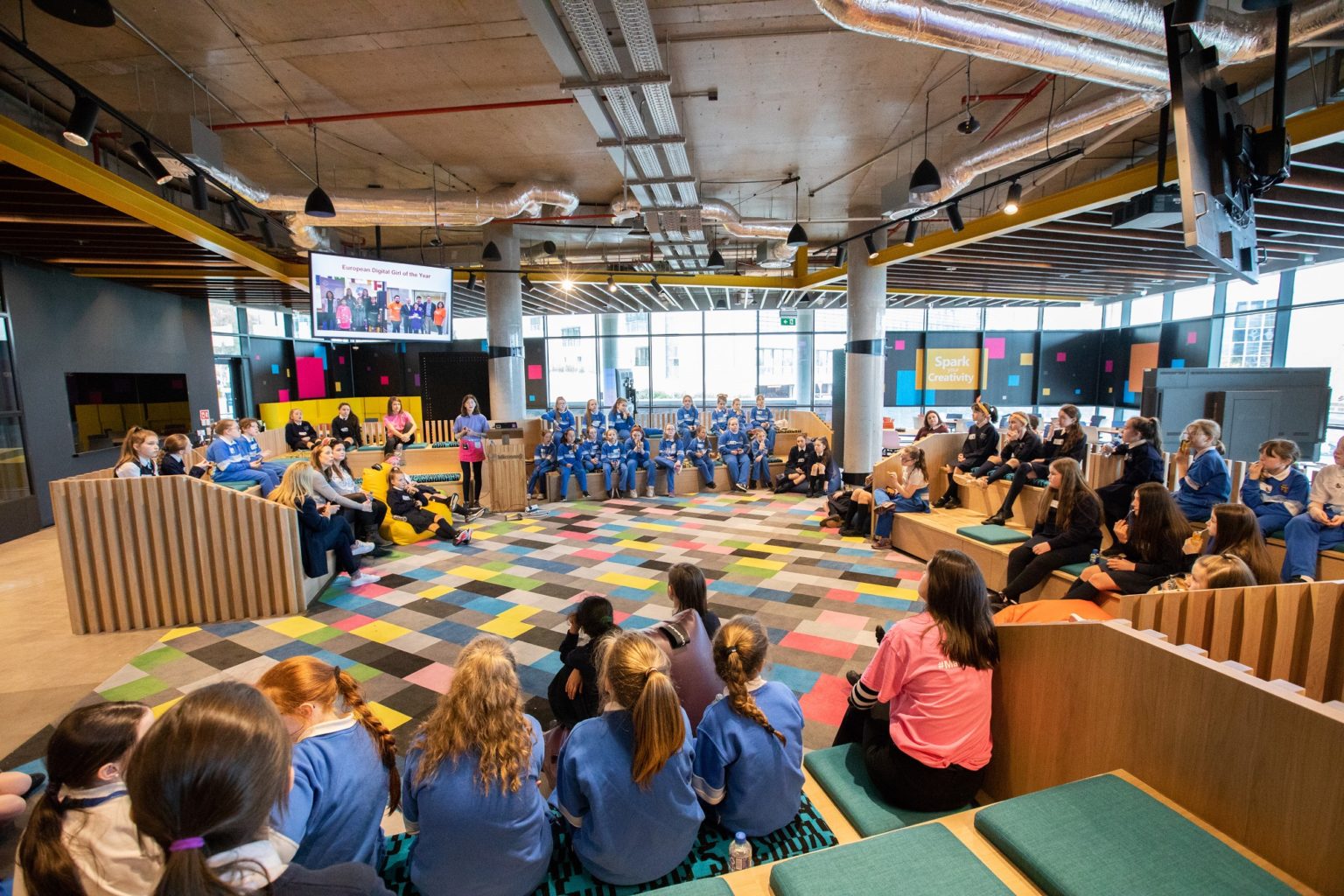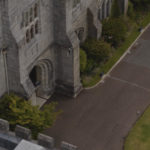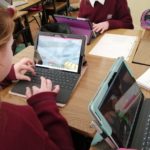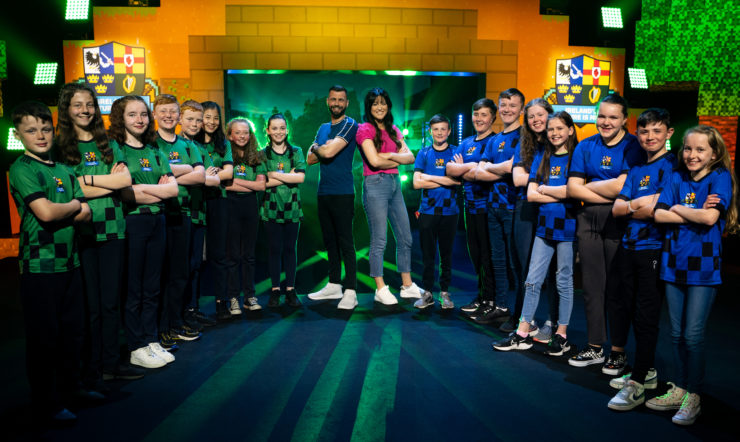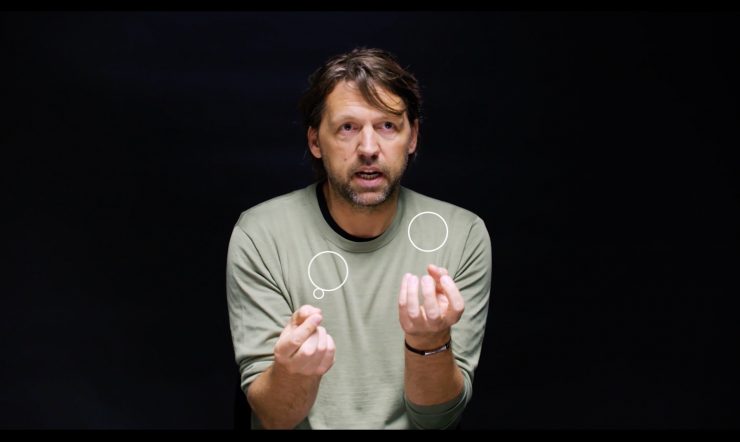Dream Space: A Catalyst for Education Change
Four years ago, Microsoft invested €5m to develop Dream Space, a dedicated innovation and education hub at our campus headquarters in Leopardstown. Opening the doors, we made a commitment to engage 100,000 primary and Transition Year students in the space. After year two we’re well on our way to achieving this with 42,000 students engaged in the experience.
We set out with a mission to help young people shift their perception of the role technology can play in their future career choices and to cultivate critical and creative thinking skills increasingly recognised as essential for the jobs of the future and not yet well served by existing education practices. With teachers accompanying them on the visits, we also wanted to demonstrate a new way of approaching teaching and engaging students in the classroom.
DreamSpace is a special place.
Run by a team of teachers with a passion for science and technology and accelerating change in our education system everyday Dream Space welcomes two classes for a unique experience. No day is the same and the experiences are adapted to suit the technical aptitude of the visiting schools so that whether they’re advanced coders or have not had the opportunity to develop digital skills they can all benefit equally from the visit.
To ensure Dream Space was succeeding in its mission we engaged NUI Maynooth to conduct research on the impact of the first two years. Anecdotally we knew that the reaction from schools across the country was very positive. At the beginning of each school term we open the registration process and we’re immediately booked out with a waiting list then in operation. We’ve had schools visit from all parts of the country from as far as Donegal and Kerry. This in itself tells us we’re meeting a need, but the research has backed that up for us.
The new report produced by a team at NUI Maynooth, ‘Microsoft Dream Space: A Catalyst for Education Change’, highlights very practical ways to overcome obstacles to STEM and achieve proven outcomes for every student. From the pool of teachers surveyed every one of them has said that they benefitted from the experience of Dream Space with 40% inspired enough to go back to their schools and explore the creative use of technology in their own classrooms. The feedback from visiting students has been equally positive with an analysis of their experience revealing an enthusiasm for self-directed learning and a greater appreciation for more creative ways of developing skills. Many felt the collaborative environment was a flavour of what they might expect in the future workplace.
The first year of Dream Space was all about introducing the space to teachers and students and building our experience and adapting it to the needs of the students visiting. In the second year, as the demand and recognition of Dream Space grew, we engaged schools in different ways. We brought Dream Space on the road and hosted ten pop up events for schools outside of Leinster so they could have the option to engage with Dream Space without having to travel to Dublin. In Kinsale Community School, a Microsoft Showcase School, we invested in a ‘Microsoft Digital Hub’ which is a resource for the school but also the region and a space we use to train teachers and engage students at various stages of the year.
More recently we announced a new partnership with W5, Belfast’s award-winning science and discovery centre, which will see Microsoft have a dedicated space to offer the Dream Space digital skills experience to primary and secondary level students in Northern Ireland. Through this new space, we will be able to reach over 15,000 students from across Northern Ireland each year.
In March, as we approached the final few months of the school year, we were busy planning for year three and exploring new ways we could grow the Dream Space community. Then restrictions were put in place and the schools closed.
Our Dream Space team immediately busied themselves in developing a virtual offering and Dream Space HomeSpace was born. Running five days a week, the portal gave students the opportunity to engage in STEM experiences from their own home and over the last few weeks they’ve undertaken the creation of their own retro games through Makecode Arcade; delvrf into our AI for Good global challenge in Imagine Cup Junior; learnt python to assist with senior cycle computer science; completed home maker challenges focused on science and engineering and learned to code through Irish. We also made a series of remote learning resources available to support teachers, parents and students navigate learning at home. Through a collaboration with RTE Home School Hub we were delighted to make Dream Space HomeSpace materials available through their channels enabling a wider group of students to engage in the experience.
The last few weeks have seen everyone embrace technology in a way that we never could have fully imagined. The reality of everyone learning from home has been a huge change and has demonstrated the vital role technology can play in not only connecting students and teachers but in transforming our education system. In recent weeks we’ve seen a divide in those who have access to technology and those who don’t. Those who are in schools who have embraced online learning models to those that have not.
Our mission at Microsoft is to empower every person and every organisation on the planet to achieve more. For the education sector this is our mission now more than ever. We need to take our recent experiences, learn from it and move quickly to put in place a framework that ensures every student has access to the same resources and learning platforms regardless of where they go to school or the communities they live in.
The programme for government unveiled this week makes a commitment to develop and embed a Digital Education Strategy – one that will ensure that teachers and students are supported. It also commits to publishing a new literacy, numeracy and digital skills strategy to support learnings – highlighting that digital skills are now being prioritised alongside the core numeracy and literacy agenda.
This is to be welcomed and as we move to year three of our Dream Space experience we are more motivated than ever to engage every student and teacher in the country in a new way of teaching and learning.
Read the full report from NUI Maynooth here: ‘Microsoft Dream Space: A Catalyst for Education Change’ and the executive summary here.


